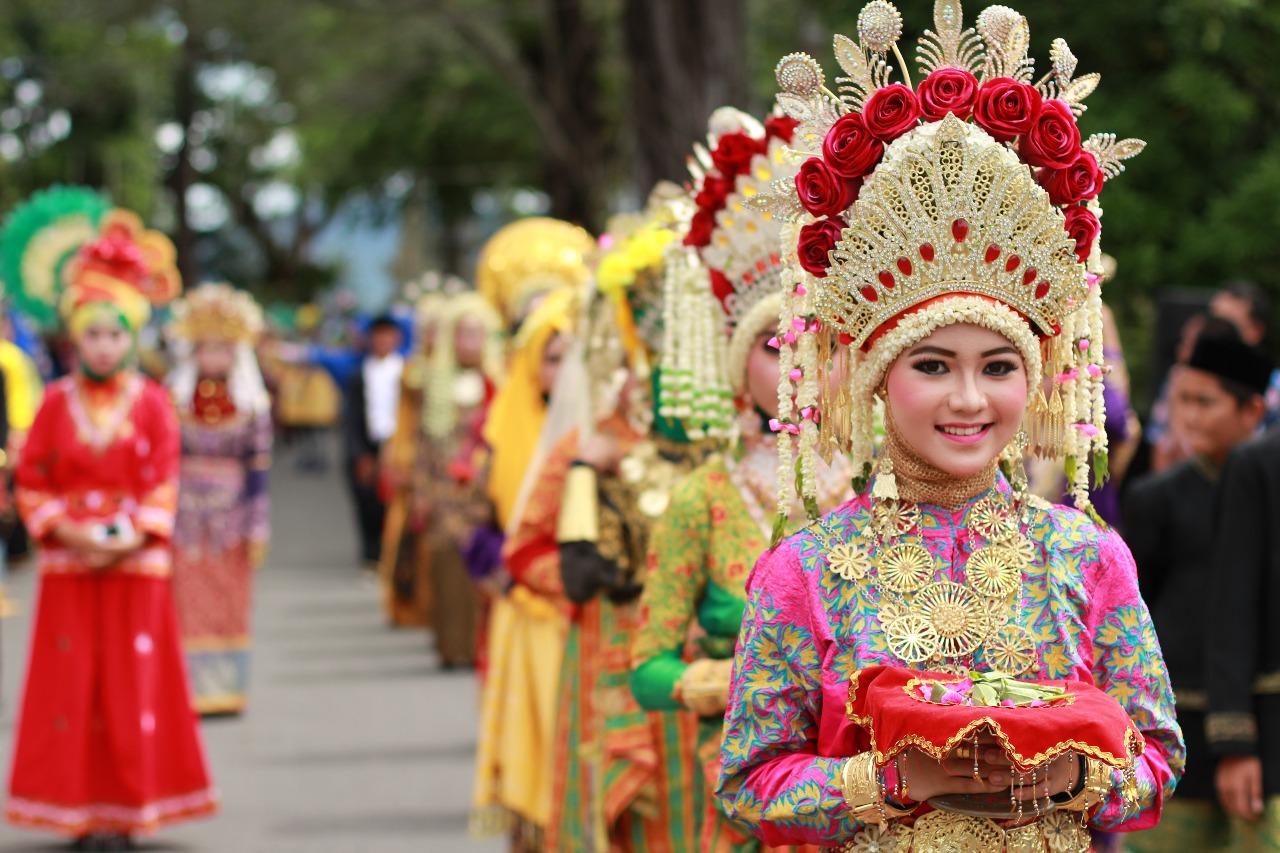Why This Indonesian Beverage Deserves Its Own Festival: A Celebration of Es Cendol’s Delectable Charms

In the realm of culinary delights, few beverages evoke the vibrant spirit of Indonesia quite like es cendol. This iconic drink, a harmonious blend of sweet, savory, and refreshing flavors, has captivated taste buds across the archipelago for centuries. Its popularity is so profound that it rightfully deserves a festival dedicated solely to its delectable charms.
A Culinary Symphony of Flavors
Es cendol’s allure lies in its intricate symphony of flavors. The base of the drink is a chilled coconut milk, its creamy sweetness providing a soothing foundation. Upon this base, a generous serving of cendol is added, giving the beverage its signature green hue. These worm-like rice flour noodles, delicately flavored with pandan leaves, impart a subtle grassy note that complements the coconut milk perfectly.
But the symphony doesn’t end there. Es cendol is adorned with a medley of additional ingredients that elevate its taste to new heights. Palm sugar syrup, known as gula jawa, adds a rich, molasses-like sweetness that balances the coconut milk’s creaminess. Shaved ice, piled high, provides a refreshing contrast to the warm flavors, creating a delightful interplay of textures.
A Cultural Heritage to Be Celebrated

Es cendol is not merely a beverage; it is a cultural heritage that has been passed down through generations. Its origins can be traced back to the 16th century, when it was believed to have been introduced to Indonesia by traders from the Middle East. Over time, it has evolved into a beloved national treasure, enjoyed by people from all walks of life.
The popularity of es cendol has inspired countless variations across the country. In West Java, it is often served with a topping of jackfruit, while in East Java, it is commonly paired with durian, a pungent but highly prized fruit. These regional variations showcase the diversity and creativity of Indonesian cuisine, further cementing es cendol’s status as a national icon.
A Festival to Honor a Culinary Gem
Given its immense popularity and cultural significance, it is only fitting that es cendol be celebrated with a festival of its own. Such an event would provide a platform to showcase the beverage’s versatility, promote its health benefits, and foster a sense of community among its countless enthusiasts.
At an es cendol festival, visitors could indulge in a wide array of cendol creations, from traditional recipes to innovative twists. Vendors would compete for the title of "Best Es Cendol," showcasing their unique blends of ingredients and flavors. The festival could also feature educational workshops, where attendees could learn about the history and cultural significance of es cendol.
Health Benefits to Savor
Beyond its delectable taste, es cendol offers a range of health benefits. Coconut milk is rich in lauric acid, a fatty acid that has been linked to improved heart health and reduced inflammation. Pandan leaves, used to flavor the cendol noodles, contain antioxidants that may protect against certain chronic diseases.
The palm sugar syrup, while sweet, is a natural sweetener that contains minerals such as iron and potassium. Shaved ice, when consumed in moderation, can provide a refreshing boost of hydration. Thus, es cendol can be enjoyed not only as a culinary treat but also as a beverage that contributes to overall well-being.
A Culinary Ambassador for Indonesia
Es cendol has the potential to become a culinary ambassador for Indonesia, showcasing the country’s rich culinary heritage to the world. Its unique flavors, cultural significance, and health benefits make it an ideal candidate for international recognition.

By organizing an es cendol festival, Indonesia could attract tourists from around the globe, eager to experience the delights of this beloved beverage. The festival would not only promote Indonesian cuisine but also foster cross-cultural exchange and understanding.
Conclusion
Es cendol, the delectable Indonesian beverage, is a symphony of flavors, a cultural heritage, and a culinary gem that deserves its own festival. Such an event would celebrate the beverage’s versatility, promote its health benefits, foster a sense of community, and showcase Indonesia’s rich culinary traditions to the world. It is time to raise a glass of es cendol and honor this beloved beverage with the recognition it rightfully deserves.



